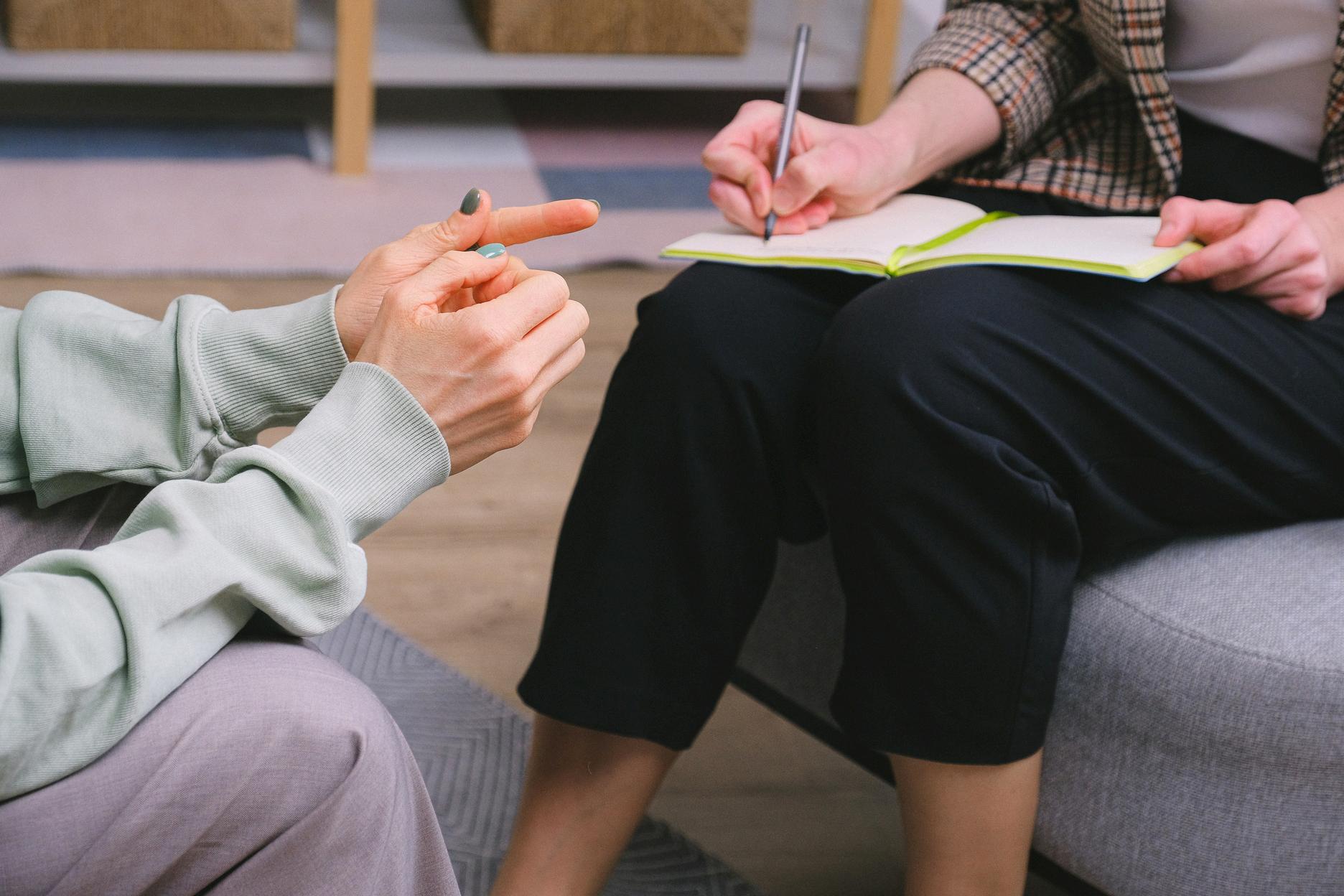


















JSWING216












You may be wondering why we’v decided to launch a magazine. That’s fair question! If you’re familiar with us you know that we host one of the nation’s top podcasts on non-monogamy and get millions of views monthly on social platforms like TikTok, Instagram, and Clapper.
So why add something else to our plate and start a digital magazine? The truth is, ALT Life Magazine isn’t about us. It’s about you and the community of people who have a message to share and need a platform to do it.
This magazine is for people who may not be able to put themselves out there publicly on social media due to fear of judgment and backlash. Our journey since 2021 into becoming social media influencers for the alternative lifestyle community, the one thing that’s remained consistent is the community and the people that encompass it.

are some of e people on the planet. The world needs to hear your stories, to get to know you, to fall in love with you like we have.
Our hope is that if they can see you for who you truly are, then perhaps the hate, the stigma, and the discrimination will come to an end.
We believe one of the best ways to do that is to do what we’ve pledged to do from the beginning; to shine a little light on the community.
So, we’d like to encourage all of you to contribute, to share your stories, to be heard.
We want you to be able to show the world how truly amazing and valuable this community is. We hope that one day we can all come out of the darkness and not have to live in fear.


neighborhood ustralian with the accent to match. s easy to get along with demeanor nd levelheaded approach to nversations as well as his tentiveness to our online mmunity and keeping it safe made inging him onboard our moderator team a no brainer. While we may work in different time zones, his effort to continue to learn, attend server meetings and continue to help those in need within the server, never fail to go unnoticed. We want to thank you for your time and dedication to our moderator team and let you know that we are grateful to have you.



Talk is cheap, my friends.
Anyone can say they want a better relationship.
Anyone can say all the things they are going to do to make their relationship better.
Anyone can make lots of promises about how they are going to start showing up differently.
But the only way to MAKE a relationship better … is by DOING better.
Yep, easier said than done … I for sure feel you on that! But just because it is not perfect right away (or ever) does not mean there cannot be truly clear and obvious efforts towards change.



BY: DR ELIZABETH FEDRICK IG: @DRELIZABETHFEDRICK
Checking in with your partner regularly to ask if their needs are being met & if there is anything you can be doing differently.
Realizing that how you behave when “triggered” might need some work … and then actually putting in the work to change it.
Choosing to make more time to connect physically & emotionally versus using “busy” or “tired” as a reason not to.
Becoming more attuned to your partner’s experiences and emotional states… and asking how you can best support them.
Demonstrating interest & curiosity about their inner world.
Initiating open and honest conversations about sex & intimacy.
Recognizing that your partner deserves the best version of you, including physically, emotionally, intellectually, etc.
Putting in necessary efforts to foster ongoing attraction & desire.
Many of us are just operating in the ways that we know. The ways that we were taught by others that had role-modeled for us. And the ways that we have found to keep us “safe” or to get our needs met in previous relationships.
However, when we really take a step back to assess, we might recognize that these behaviors are not actually keeping us safe, but rather keeping us disconnected, scared, and frustrated.
If you are desiring a safe, fulfilling, and connected relationship … that is going to require that you take inventory of what is working and what is not…
But then the real change can only take place through ACTIONS … by putting efforts into addressing what is not working.



BY AYNE

The realms of alternative lifestyles, focused on the BDSM and non-monogamous communities, encompass a wide spectrum of consensual activities and relationship structures that involve a unique relationship between psychological and physiological dynamics. Among these, the role of endorphins — often referred to as the body’s natural painkillers stands out for its profound impact on the experiences of those involved. Understanding the science behind endorphin highs and lows can shed light on why BDSM and ethically non-monogamous (“ENM”) relationships can be intensely pleasurable and emotionally bonding.
Endorphins are neurotransmitters produced in the brain that function to alleviate pain and induce feelings of pleasure. They are part of the body’s natural response to stress and pain, operating similarly to opioids by binding to receptors in the brain to reduce the perception of pain and trigger feelings of euphoria.

In the context of BDSM, intense physical sensations such as spanking, flogging, or other forms of impact play can stimulate the release of endorphins. The anticipation of pain and the actual experience can cause the body to flood with these chemicals, creating what is known as an “endorphin rush.” This rush is often described as a natural high, akin to the runner’s high experienced during prolonged physical exertion. In ENM relationships, the novelty and excitement of new encounters can similarly trigger endorphin rushes. Meeting a new partner, engaging in flirtation, and experiencing new sexual adventures can all stimulate the release of endorphins. The thrill of newness and the anticipation of these experiences can create a powerful high, enhancing the pleasure and emotional connection felt with both new and existing partners.
For many participants, this endorphin rush can lead to a state of bliss, heightened arousal, and a deep sense of connection with their partner. The physiological effects are complemented by psychological factors, such as the trust and intimacy required for such activities, further amplifying the experience.
Endorphins are produced by the central nervous system and the pituitary gland. When the body undergoes stress, pain, or intense pleasure, the hypothalamus triggers the release of endorphins. These neurotransmitters then interact with opioid receptors, reducing pain signals and promoting feelings of pleasure.

The intensity of the endorphin release can vary based on several factors, including the duration and intensity of the activity, individual pain thresholds, and psychological readiness. The combination of physical and emotional stimuli creates a potent mix that can significantly amplify the endorphin response. In some instances, the fact that these experiences are taboo to the mainstream world can contribute to the endorphin response as w
EndorphinDrops:TheAftermathoftheHig

Just as the rush of endorphins can lift participan nt drop can lead to a noticeable emotional and physical low, often referred to as subdrop or “top drop” in BDSM contexts. This phenomenon occurs as the endorphin levels in the body return to baseline after the intense stimulation subsides. In ENM relationships, an endorphin drop can occur after the excitement of a new encounter fades. The return to routine or the end of an exhilarating date can leave individuals feeling a temporary low, similar to the comedown experienced in BDSM.
During an endorphin drop, individuals might experience feelings of sadness, lethargy, irritability, or even mild depression. Physically, they might feel exhausted, sore, or have a decreased immune response. This is a natural consequence of the body’s attempt to rebalance its neurochemistry after a significant surge.
Awareness and proactive management are crucial in mitigating the effects of endorphin drops. Aftercare, the practice of providing physical and emotional support following a BDSM scene, plays a vital role. Aftercare can involve comforting physical touch, hydration, nourishment, and verbal reassurance, helping the body and mind transition smoothly from the heightened state back to normalcy.
In ENM, aftercare can take the form of quality time with a primary partner, open communication about feelings, and self-care routines that help individuals navigate the emotional highs and lows of multiple relationships.
Communication between partners is essential, both before and after a scene or encounter, to ensure that any emotional or physical needs are addressed. Understanding that endorphin drops are a normal part of the process can also help individuals prepare mentally for the experience.
Beyond the immediate effects of pain relief and pleasure, endorphins also play a role in social bonding. Activities that trigger endorphin release can enhance feelings of closeness and trust between partners. This is particularly significant in BDSM, where trust and mutual consent are foundational. In ENM relationships, the shared excitement and new experiences can similarly deepen bonds and strengthen connections.
The shared experience of an endorphin rush and the subsequent drop can strengthen the emotional connection between partners, fostering a deeper sense of intimacy and mutual understanding. This bonding aspect is a key reason why many individuals find BDSM and ENM to be fulfilling and enriching components of their relationships.
The interplay of endorphin rushes and drops in BDSM and ENM is a testament to the intricate relationship between the mind and body. By understanding the science behind these phenomena, participants can better navigate their experiences, ensuring they derive maximum pleasure and emotional fulfillment while maintaining physical and psychological well-being. Whether it’s the euphoric highs of a BDSM scene, the thrill of a new romantic encounter, or the tender moments of aftercare, endorphins play a crucial role in the rich tapestry of these diverse and dynamic relationship styles.


BY: AEROROSES & EVILLE1984
{Eville1984 & Aeroroses have been together for 17+ years and married for 12 years Our lifestyle journey began in November 2022 and quickly evolved, giving us experience in full swaps, group play, threesomes, hotwife/hothusband, and same-sex play styles

My husband and I have thought about seeing a therapist to address My husband and I have thought about seeing a therapist to address some of the issues and feelings we have been having since joining the some of the issues and feelings we have been having since joining the lifestyle but did not know if this was normal and if therapists even lifestyle but did not know if this was normal and if therapists even dealt with this subject. Have you ever used couples therapy or do you dealt with this subject. Have you ever used couples therapy or do you have other advice to help us work through the hard parts? have other advice to help us work through the hard parts?
It is typical for couples in the lifestyle to experience “bumps in the road,” some of which can feel overwhelming and even sometimes seem like the end of your marriage. You start questioning why you started doing this to begin with and was it all worth it. We always say that it is extremely important to have effective communication with each other first before engaging in swinging or other alternative lifestyles – but even the best of communicators can find themselves out of their element when faced with challenges to their relationship that they both thought they wanted.
We had our own insecurities in the beginning and needed advice. It seems like at some point every couple runs into feelings of jealousy, inadequacies, body dysmorphia, etc. We first spoke to friends and got their advice. They recommended some books to read, podcasts, and one couple recommended trying couple’s therapy. They highly recommended it, with or without having specific concerns to address. Therapy was something familiar to us, as we had both had experience with counseling in the past, but we had never engaged in couple’s therapy. So, we began searching for someone who was LS friendly and able to meet us via video sessions, which allowed us to meet within the comfort of our own home and work around our schedules.
We ended up finding a therapist that was well-versed in alternative sexual relationships, and she was amazing. We had found her at a time when we had already worked through the initial bumps we encountered when we had first started. We were a couple that went into the lifestyle hard and fast. Ripping the Band-aid off became a kind of mantra for us. We decided that if we tried something we did not like or if it invoked feelings we were not expecting, we would address them and dig into the root cause of those feelings and move forward accordingly.
Even though we were not experiencing any current issues, we still sought out therapy to make sure that we were navigating things correctly and that our current approach was going to be effective long-term. We were pleased to find validation in how we were approaching any conflict that arose, and we both found a forum to voice ourselves with a non-biased mediator. That right was the key. Even though we were able to work through any issues that arose, it was always between the two of us, without any non-objective gut check. We continued to see this therapist for about six months, working through every new scenario and play type we experimented with along the way. We both learned a lot about ourselves, how we handle our own emotions, and the way we interpreted each other’s reactions. Overall, it taught us to trust each other more, and that was a major component of how we continued to navigate our lifestyle journey.
There were times when a particular interaction would cause one or the other to project our own insecurities onto the other partner, when that feeling existed only in our heads. One particular emotional response we learned about is “emotional monitoring,” which is a response to trauma where the person internalizing an insecurity is constantly assessing and checking the emotional state of their partner, where that partner may not even be aware there is an insecurity, the other partner is trying to process. Working through these instances gave both of us a stronger sense of confidence in each other by helping us understand how we ourselves were processing our own emotions. We both always knew that there was no real threat to our relationship by engaging with other partners, and the dialogue between us and our therapist solidified that knowledge with each session.


At the same time we were breaking down these scenarios, we were also working through some helpful articles and books, one of which was The Jealousy Workbook, which contained scenarios and theoretical that forced both of us to list out any perceived threats to our relationship and understand that these threats were indeed just that, perception. It was a very insightful and liberating experience working through this book together and understanding each other’s vulnerabilities. No matter how secure you may feel in your relationship, it is still healthy to lay all the cards on the table and give each other an opportunity to speak the things that you may not feel comfortable expressing directly or even know that you are internalizing.
Whether you think you have a current issue to work through or not, engaging with a professional is a great idea. Traditional relationships are fraught with turbulence on their own. There’s stress around interpersonal communication, work, family, and all the normal push and pull of everyday life; and engaging in non-traditional relationships adds a layer of complexity for which very few people understand the nuances. Seeking out guidance from an understanding therapist can teach you a lot about each other – and yourselves.


Have a question or seeking some advice? Submit your anonymous questions to us via the Swinger Society Discord under #MagazineChat and find the link to submit under the pinned posts; or go to https://www.surveymonkey.com/r/RMDWQTV


To me, livi living ou customs and believes of what is “right” or what is “supposed” to happen. For us, we see living true to who we are as more important than living as how others think we should.




HOWWOULDYOUDEFINEYOURALTLIFE?
I would describe our AltLife as ever changing. Which is exactly how we want it. We go with the flow and face changes with excitement and curiosity.
When asked this question we usually tell the story of how Chris asked me to bring a guy to my hotel room while I was traveling for work often. It took a year from that date to introduce “hotwifing” into our playstyles. We went slow and talked about every emotion along the way. This was a painful step at times. But worth every second to be able to truly know each other on a deeper level.
But really since the moment we were together in 2006 we dabbled. Since I was bisexual and never hid that from him, I would occasionally ask if I could bring girls home for FFM. He so selflessly obliged. haha
WHATISONELESSONYOUHAVELEARNONYOURALTLIFEJOURNEY?
I have learned so much on this journey but I had to pick one thing it would be to really dive into WHY, when you feel an emotion you dont understand. And do the self work to move past those insecurities.


HOWLONGHAVEYOUBEENLIVINGANALT LIFE?WHATATTRACTEDYOUTOIT?
Looking back at my relationships my entire life, I suppose I have always lived an AltLife. Just sometimes more clearly than others.
What attracts me to the LS is that every relationship can be custom fit to what works for that couple/group. There isnt a one size fits all. I guess I never liked being told I had to fit into this nice, neat box society prepared for me.

WHATISYOURFAVORITEFOOD? French Fries! We
I have know I was bi-sexual since I w either sex and had my first b




WAYDUETOSTIGMAS,BIASEDORDISCRIMINATION?

I am very blessed that my family supports the choices I make for my life. Some friends have seemed drift away, but the lifelong friends we've made along the way far out weigh the ones we've lost.
I started trying to model last year, I have realized many photographers don't want to work with models who also partake in SW. So I'm immediately disqualified for projects.
WHATISONETHINGWECANDOASA COMMUNITYTOSUPPORTEACHOTHER BETTER?
One main way we can support each other is stop judging others for play styles/kinks that are different than your own. We are judged so much by the vanilla world, we should be a safe space for others to be themselves, no matter what!
HOWISONEWAYYOUAREFIGHTINGTO HELPSTOPTHESTIGMAYOURALTLIFE PRESENTSINSOCIETY?
I am fighting the stigma by being willing to be public. For every person that steps out of the shadows helps so many more feel they aren't "abnormal" or "wrong". It helps those that don't know anything about the lifestyle see that we are just normal, pto moms, soccer dad's, lawyers, chefs, teachers, nurses, any walk of life is sounds in our community!


Oreos and Tetris. Sometimes at the same time lol WHAT'SYOURGUILTYPLEASURE?
ISTHEREANYTHINGYOUWOULDLIKETHE ALTLIFECOMMUNITYTOKNOWABOUTYOU?
I am actually very shy/nervous in person. So if you see me out or at an event- SAY HI!
I am not ignoring you, i am just too awkward to say anything!

BY: HOTDILF

ENM encompasses a range of relationship structures where individuals engage in consensual romantic or sexual relationships with multiple partners. As with any relationship model, this can and will involve experiencing rejection. Understanding how to handle rejection is crucial for maintaining emotional health and fostering positive relationships within the community. I’ve outlined a 10 step starter process.
Rejection can stir a variety of emotions, from sadness and anger to confusion and self-doubt. It's important to acknowledge these feelings without judgment. Allow yourself to grieve the missed opportunity and recognize that your feelings are valid.
Effective communication is a cornerstone of ENM. When dealing with rejection, it's helpful to discuss your feelings with a trusted partner or friend within your network. Expressing your emotions can provide relief and may offer new perspectives on the situation.
Self-compassion involves treating yourself with the same kindness and understanding that you would offer to a friend. Remind yourself that rejection is a natural part of life and not a reflection of your worth. Engage in activities that make you feel good about yourself and reaffirm your value.
Respecting boundaries is essential. If someone rejects a romantic or sexual advance, it's crucial to respect their decision without pressuring them or attempting to change their mind. When you can respect the boundaries of others, it fosters trust and maintains the integrity of your relationships. 01 02 03 04
Rejection can be an opportunity for personal growth. Reflect on the experience and consider what you can learn from it. Were there communication issues? Did you misread signals? Understanding these aspects can help you navigate future relationships more effectively.
Lean on your support network during times of rejection. This is a critical step at times. Whether it’s friends within the ENM community or a therapist familiar with non-monogamous dynamics, seeking support can provide comfort and guidance. Support groups, both online and in-person, can offer a sense of community and shared experience.
It’s not uncommon to have multiple relationships in ENM, which can help provide perspective on rejection. One rejection doesn't negate the value of your other connections. Maintaining perspective helps you see rejection as a single event rather than a defining moment. 08
Self-care is vital when dealing with rejection. This could include physical activities, such as exercise or yoga, creative outlets like writing or art, or simply taking time to relax and unwind. Self-care helps you recharge and refocus, making it easier to move forward.
Channel your energy into nurturing the relationships that are thriving. Positive interactions with other partners can reinforce your self-esteem and remind you of the love and connection you already have. Celebrating these relationships can help mitigate the sting of rejection.
Try to reframe rejection as a form of redirection. It might mean that the person was not a suitable match for you, and this opens up the possibility for more fulfilling connections in the future. Reframing rejection can transform a negative experience into an opportunity for growth.
Rejection is an inevitable part of any relationship structure, including ethical nonmonogamy. By acknowledging your feelings, communicating openly, practicing selfcompassion, respecting boundaries, reflecting on the experience, seeking support, maintaining perspective, engaging in self-care, focusing on positive relationships, and reframing rejection, you can handle rejection in a healthy and constructive way. These strategies will not only help you cope with rejection but also enhance your overall experience in the ENM community. A good motto to live by is “you might not be someone’s cup of tea, but you could be someone’s shot of whiskey!”

From: NCSF “What Professionals Need to Know about Nonmonogamy 2024”
Polyamory
The philosophy or state of being romantically and intimately involved with more than one person simultaneously, with the knowledge of all involved.
Open Relationship
Open Relationship
An intimate relationship that is sexually non-monogamous, without necessarily involving emotional intimacy with other people.
Relationship Anarchy
Relationship Anarchy
The application of anarchist principles to intimate relationships that value autonomy, antihierarchical practices, lack of state control, anti-normativity, and community interdependence. Andie Nordgren popularized the term “relationship anarchy” in their 2012 Tumblr essay “The short instructional manifesto for relationship anarchy.”
Swinging
Swinging Activities in which both singles and partners sexually and socially engage with others.
Solo Polyamory
Solo Polyamory
An individual without a designated “primary partner” who is romantically and/or intimately involved with more than one person simultaneously, with the knowledge of all involved.
LanguageYouShouldKnow LanguageYouShouldKnow

While this is not an exhaustive list, it does help acquaint a professional with some of some of the important language of consensual non-monogamy communities.
Alternative Sexuality (Alt-sex)
An umbrella term for a wide range of sexual and relationship practices between consenting adults, including CNM and kink.
Compersion
Compersion
A feeling of joy when a partner invests in and takes pleasure from their partners’ romantic or sexual relationship. The Kerista Commune coined the term, and while it is not necessary for a happy CNM relationship, many find it a benefit of CNM dynamics (Flicker et al., 2021; Flicker et al., 2022; Thouin-Savard, 2021).

Nesting Partner
Nesting Partner
Partners who live together and may have shared finances.
New Relationship Energy (NRE)
New Relationship Energy (NRE)
A strong, almost giddy feeling of excitement and infatuation common at the beginning of any new romantic relationship.
Ethical Nonmonogamy (ENM)
Ethical Non-monogamy (ENM)
Another term for a wide range of consensual and ethical non-monogamous practices.
Fluid Bonding
Fluid Bonding Practices that involve the exchange of bodily fluids, such as barrier-free sexual intercourse and BDSM.
Kitchen Table Polyamory
Kitchen Table Polyamory
A network of partners and metamours who all hang out and have close relationships, as symbolized by sitting down at a kitchen table together to have a meal.
Lifestyle
Lifestyle
The swingers community sometimes refers to itself as “the lifestyle” or “alternative lifestyle.”
Metamour
Metamour
The partner of one’s partner with whom one does not share a direct sexual or loving relationship.
Polycule
Polycule
An extended series of connections between partners and metamours that link a group of people together.
Polygamy
Polygamy
Polyamory may be confused with polygamy (having multiple simultaneous marriages), a relationship structure most commonly practiced by certain conservative religious groups (Barnett, 2014; Willey, 2006). However, consensual non-monogamy as an identity and/or relational orientation is not based on specific religious or spiritual teachings.
Primary / Secondary
Primary/Secondary
A polyamorous relationship structure in which a person has multiple partners with varying degrees of interconnection, emotional intensity, intertwinement in practical or financial matters, or power within the relationship. A person in a primary/ secondary relationship may have one (or more than one) primary partner and one or more additional secondary or tertiary partners.
I just finished the book “The Power of Habits” by Charles Duhigg it got me thinking about the things we do every day. Our days are filled with things that we do out of ‘habit’, from the time we wake up and check our phones to the time we go to sleep at night. Some of them productive, and others not exactly conducive to meeting our goals. In his book, Charles Duhigg says, “What you do every day matters more than what you do every once in a while”. How many of us have tried to establish healthy habits only to give up on them after a few days?
“What



you do every day matters more than what you do every once in a while”
Charles Duhigg

I’m going to share with you a few tips that I have used to not only establish healthy habits in my daily life but also maintain them.
1. Find someone to hold you accountable
A major reason that most people fail when they set out to establish a new exercise or nutrition program is a lack of accountability. It’s much harder to hit that snooze button if you know that your friend Bob is waiting on you at the gym. Or if you have someone tracking what you eat every week, it makes it much easier to say ‘no’ to that extra piece of pie.
So, recruit a friend, family member, or co-worker to help keep you accountable. Ask them to check in with you. Or better yet, reach out to that one crazy friend you have that seems to be in the gym every day and ask them if you can come work out with them. I promise they will be happy you did!

Make a plan and write it down. Your plan should include small, reasonable goals and the specific actions that you’re going to take to meet those goals. For instance, if you get junk out of the vending machine in the break room every day, try avoiding the break room and instead pack your own healthy snacks from home to keep at your desk. Plan for the obstacles. What typically derails you, and what can you do to stay on track and not default to those old habits? If you need help setting goals and formulating a plan, reach out to me or Coach Scott. We are here to help. Once you set some goals and make a plan, post it in our group! We have an extremely encouraging and friendly group to help support you.
Sometimes, when we start pursuing healthy habits, it seems like more roadblocks pop up. You need to remember that you’re never too out of shape, too overweight, or too old to make healthy changes. Sometimes, you have to make small changes in strategy along the way. Be patient with yourself and your progress. Change is a process, and what’s most important is that you continue to move forward.
We are here to help.
Stay naughty, friends.
In health, Coach April


July 2024
*All reviews provided to us are anonymous
“We had so much fun! This was our first swinger event and the way we were able to connect with couples going ahead of time through the website and discord set the stage for getting to start connections and then know somebody walking in. It was an amazing experience and everyone i e!”
“This was our first LS event ever. Go big or go home, right?! :) We had an absolute blast. I couldn’t have been happier with our first experience.”

“Wehad an amazingtime first Takeover. Everyone was so welcomeandnice. ”

“We had a great time! This was our 3rd takeover and so far our favorite. See you again in October. ”
“This was our first event with Swinger Society and our first time at Secrets! We had a blastWmetsomeawesomenewpeople! ewilldomoreeventsforsure!”
BY: DENISE HOLT
Does this sound familiar? Between kids, work, and life’s random obligations, it has been months since you and your partner have been to a lifestyle event. But the stars align, and you squeeze an evening onto the calendar between a dance recital and a work trip. It is glorious.
You begin to count the days, buy sexy clothes for the occasion, and hit the internet to see who else will be there. Like an island of reprieve in the middle of your plain vanilla life, you see the evening off in the distance. And the best part? The mere idea that you have something steamy planned in the future magically improves the sex in the bedroom tonight. Like Pavlov’s dog, anticipation is a powerful emotion. Let the salivating begin!
When the big night arrives, you check into the hotel and open a bottle of champagne. You have a playful pillow fight as you listen to music and prepare to go out. Life is good, and the evening at hand promises to be even better. And then it happens. Between last-minute touch-ups to your makeup and stepping into the club, your night goes sideways. Sometimes the cause is obvious. Other times, something small feels off, and it slowly creeps in to smother your evening. It might be a comment taken the wrong way. It might be a brief flash of jealousy. It might be a poorly timed reference to an episode from a previous outing. Whatever the reason, you and your partner are soon on the verge of panic as disappointment, frustration, and anger push out all that lovely, built-up sexual angst.

When there is a limit on playtime, we put so much pressure on a single event that anything that distracts from a perfect evening becomes a disappointment. And then blame begins to flow. And resentment. And more disappointment. Soon the evening spirals to the point of no return. No memories for the highlight reel tonight. We can try again in another six months. Ugh.
If you find yourself in such a situation, try the following strategy. Though simplistic, it has saved countless evenings in my marriage from running off the rails. What is it? The New Man Strategy. Now, to be clear, I do not mean you should find a new partner (though if you play your cards right, that may come later). New Man is a concept like a video game. You have a player. He dies. You get a new man. And the important part? The new man does not carry any of the wounds or baggage or hurt feelings he had in the previous game. Can it be that simple? Yes. But it requires a few things.

First, you must trust that you have a partner who loves you and that they would never do something intentionally to hurt you (*bdsm not included!). If you cannot say this about your partner, you should find a new partner. But if this is true in your relationship, the rest is easy. Stop and take a deep breath when you realize the evening is going sideways. Figure out what was said or done that sent the evening off the rails. And if you were the cause, apologize. Quickly. Own it. The first rule of New Man requires you to throw yourself at the mercy of the court. You screwed up. You would never intentionally hurt your partner. Take full responsibility. If, on the other hand, you are the one receiving the apology, New Man Rule number two is that you must accept the apology. Wholly. And completely. Hug, kiss, and do not mention it again. Go forth and make great memories together. It can still be a great night.
Does this work all the time? Of course not. But in my personal experience, on nights that it did not work for us, we had far greater issues going on and didn’t belong at a lifestyle event in the first place. Does this allow you to be petty or use these occasions to vent things that should have been discussed months ago? No. Should you declare New Man three weeks in a row or multiple times a night? No. This is a technique for a loving couple who have put too much pressure on one evening and things unintentionally went sideways. Many people will find this advice to be a bit simplistic. Corny. Even unrealistic. But pay attention, the next time your Big Night goes sideways, you will think back to this post and roll the dice. And why not? What do you have to lose? New man!
We often relegate “pleasure” to sexual encounters - inadvertently robbing ourselves of simple and delightful pleasures that are ours for the taking.
I encourage you to consider how adding a Daily Pleasure Practice, like the one below, might enhance your commute to work, busy mornings with your children, evening walks with your dog, and, yes, even your hurried showers.
Luxuriating in the world around us enables us to expand our capacity for pleasure and integrate eroticism in all its forms. If consistently practiced, this seemingly small mindshift will revolutionize the way you see yourself, others and the world around you.


auren Elise Rogers
HSE works with individuals and partners to restore positive and consensual pproaches to sexuality and relationships She has udied the lasting effects of trauma, childbirth, parenthood, culture, and spirituality on human sexuality and believes that xual health is an inherent, essential, and beneficial mension of being human.
Slowly work through each of your senses using the prompts below.
Focus on only one sensation for each sense that brings you pleasure.
S E E 01
Wherever you are right now, find one thing of beauty that brings you joy and look at it. Truly look. The key is to focus on something you enjoy - NOT something that disturbs your nervous system. What is it about this thing that is worth admiring?

T O U C H 03
Feel the world through your fingers. Touch the different textures of your clothes and consciously notice what sensations that produces. What about the ridges of the steering wheel or your bike handles? What happens when your hands grasp a warm tea cup or a glass of ice water? Place a small stone or shell in your pocket for the day and play with it secretly. What do you feel?
H E A R 02
If you can, go on a walk and focus on the rustling of the trees, the sound of the birds singing, or a stream or the ocean. If you’re on the subway, can you hear a rhythm that brings you joy? Focus on the different sounds and then let them meld together. What did you notice?
S M E L L
04
Before you take your next bite of food or sip your next beverage, inhale slowly. What do you smell? Imagine the scent moving into your body. Register the sensation. Wait until you have absorbed your body’s reaction before you eat or drink.
T A S T E 05
After you have enjoyed the scent of your food or beverage, take a bite or sip and taste it deliberately. Notice where in your body the taste registers and any emotions you might feel Eating can be a deeply sensual and emotional act - give it permission to be.


_ Gal _ Nicole joins ALT Life as editorial operations, and is passionate about ENM education









